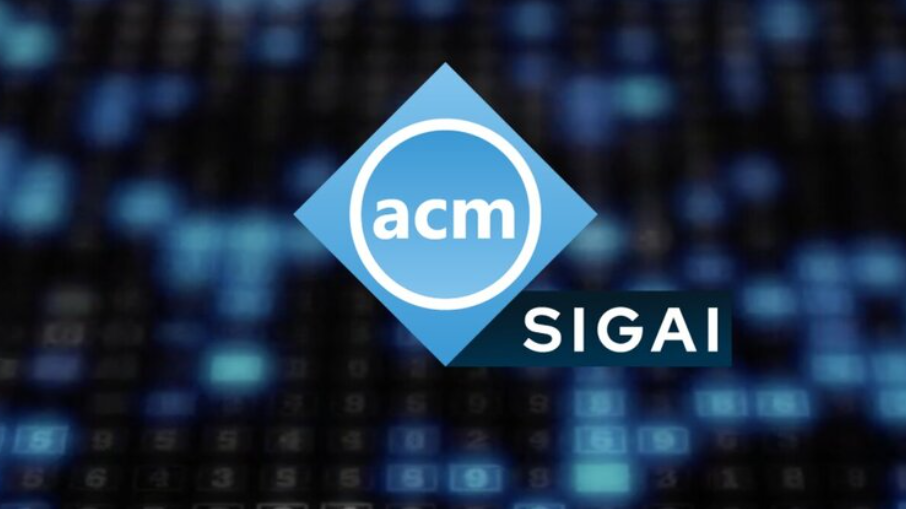Is Blazor the Best Alternative to JavaScript Frameworks and Libraries?
Inspired by two YT videos about the Blazor's future (links in the comments) I decided to write this article. The web development ecosystem has long been dominated by JavaScript frameworks like React, Angular, and Vue.js. Recently, Microsoft's Blazor has emerged as a strong and compelling alternative, empowering developers to build interactive web applications using C# and the .NET platform. But can Blazor be considered the best alternative to JavaScript frameworks? Increasingly, the answer is trending positively. Blazor's Key Strengths Seamless .NET integration: Blazor’s tight integration with .NET offers developers immediate access to the expansive .NET ecosystem, including scalability with .NET Aspire and advanced AI capabilities through .NET libraries. Microsoft's long-term commitment to Blazor, as highlighted by Dan Roth, ensures that Blazor is well-supported, stable, and future-proofed within the .NET ecosystem. Full-Stack development with C#: One of Blazor’s most significant advantages is the ability to use C# across the entire application stack. This not only eliminates the need to learn or use JavaScript but also simplifies code management and improves productivity. Developers proficient in C# find Blazor particularly intuitive and easier to adopt compared to JavaScript frameworks, significantly reducing the learning curve, especially for beginners. Flexible performance and hosting models: Blazor provides versatile hosting models tailored to diverse performance and security requirements: Blazor Server: Offers fast load times and secure real-time interactions with server-side logic via SignalR. Blazor WebAssembly (WASM): Executes .NET directly in browsers, enabling offline support and near-native performance. Server-Side Rendering (SSR) and Streaming Rendering: Enhances dynamic content delivery and performance. Strongly typed development environment: C#’s strongly typed nature offers superior compile-time error checking, significantly reducing runtime errors compared to JavaScript. The robust tooling available in Visual Studio further enhances the developer experience, making Blazor especially appealing for those seeking reliability and ease of debugging. Backed by Microsoft: Continuous investment and robust support from Microsoft underscore Blazor’s stability and long-term viability, giving developers confidence in its strategic importance within the .NET ecosystem. Considerations compared to JavaScript frameworks Job market and skill transferability: While the job market currently favors JavaScript frameworks, expertise in Blazor and the broader .NET ecosystem substantially enhances a developer’s versatility, making them highly marketable across diverse .NET-focused roles. Rapidly growing community: Though smaller than JavaScript frameworks' communities, Blazor’s ecosystem is expanding rapidly, driven by enthusiastic developers and substantial support from Microsoft. New libraries and components are continuously emerging, enriching its ecosystem. Front-End performance considerations: Blazor WebAssembly requires downloading the .NET runtime, which slightly increases initial load times. However, for internal or enterprise applications deeply integrated with .NET, the productivity benefits often outweigh this minor overhead. When should You choose blazor? Blazor excels for organizations already invested in .NET infrastructure. Beginners familiar with C# will find Blazor more accessible, significantly reducing complexity and learning requirements compared to JavaScript frameworks. By eliminating the necessity of using JavaScript, Blazor simplifies development, reduces errors, and improves overall productivity. Conclusion Blazor is increasingly establishing itself as an exceptional alternative to JavaScript frameworks. Its ease of adoption for C# developers, comprehensive full-stack capabilities, robust tooling, and strong backing from Microsoft make it particularly appealing. Ideal for: Beginners familiar with C#, teams focused on .NET, and internal or enterprise-level applications seeking productivity and simplicity without JavaScript. Less optimal for: Applications strictly requiring minimal initial load times for wide-ranging device compatibility. Blazor's strengths clearly position it as a leading choice for modern web development, especially for teams leveraging the .NET ecosystem. Developers evaluating web frameworks should seriously consider Blazor as an advantageous and highly practical alternative to traditional JavaScript frameworks.

Inspired by two YT videos about the Blazor's future (links in the comments) I decided to write this article. The web development ecosystem has long been dominated by JavaScript frameworks like React, Angular, and Vue.js. Recently, Microsoft's Blazor has emerged as a strong and compelling alternative, empowering developers to build interactive web applications using C# and the .NET platform. But can Blazor be considered the best alternative to JavaScript frameworks? Increasingly, the answer is trending positively.
Blazor's Key Strengths
Seamless .NET integration:
Blazor’s tight integration with .NET offers developers immediate access to the expansive .NET ecosystem, including scalability with .NET Aspire and advanced AI capabilities through .NET libraries. Microsoft's long-term commitment to Blazor, as highlighted by Dan Roth, ensures that Blazor is well-supported, stable, and future-proofed within the .NET ecosystem.
Full-Stack development with C#:
One of Blazor’s most significant advantages is the ability to use C# across the entire application stack. This not only eliminates the need to learn or use JavaScript but also simplifies code management and improves productivity. Developers proficient in C# find Blazor particularly intuitive and easier to adopt compared to JavaScript frameworks, significantly reducing the learning curve, especially for beginners.
Flexible performance and hosting models:
Blazor provides versatile hosting models tailored to diverse performance and security requirements:
- Blazor Server: Offers fast load times and secure real-time interactions with server-side logic via SignalR.
- Blazor WebAssembly (WASM): Executes .NET directly in browsers, enabling offline support and near-native performance.
- Server-Side Rendering (SSR) and Streaming Rendering: Enhances dynamic content delivery and performance.
Strongly typed development environment:
C#’s strongly typed nature offers superior compile-time error checking, significantly reducing runtime errors compared to JavaScript. The robust tooling available in Visual Studio further enhances the developer experience, making Blazor especially appealing for those seeking reliability and ease of debugging.
Backed by Microsoft:
Continuous investment and robust support from Microsoft underscore Blazor’s stability and long-term viability, giving developers confidence in its strategic importance within the .NET ecosystem.
Considerations compared to JavaScript frameworks
Job market and skill transferability:
While the job market currently favors JavaScript frameworks, expertise in Blazor and the broader .NET ecosystem substantially enhances a developer’s versatility, making them highly marketable across diverse .NET-focused roles.
Rapidly growing community:
Though smaller than JavaScript frameworks' communities, Blazor’s ecosystem is expanding rapidly, driven by enthusiastic developers and substantial support from Microsoft. New libraries and components are continuously emerging, enriching its ecosystem.
Front-End performance considerations:
Blazor WebAssembly requires downloading the .NET runtime, which slightly increases initial load times. However, for internal or enterprise applications deeply integrated with .NET, the productivity benefits often outweigh this minor overhead.
When should You choose blazor?
Blazor excels for organizations already invested in .NET infrastructure. Beginners familiar with C# will find Blazor more accessible, significantly reducing complexity and learning requirements compared to JavaScript frameworks. By eliminating the necessity of using JavaScript, Blazor simplifies development, reduces errors, and improves overall productivity.
Conclusion
Blazor is increasingly establishing itself as an exceptional alternative to JavaScript frameworks. Its ease of adoption for C# developers, comprehensive full-stack capabilities, robust tooling, and strong backing from Microsoft make it particularly appealing.
- Ideal for: Beginners familiar with C#, teams focused on .NET, and internal or enterprise-level applications seeking productivity and simplicity without JavaScript.
- Less optimal for: Applications strictly requiring minimal initial load times for wide-ranging device compatibility.
Blazor's strengths clearly position it as a leading choice for modern web development, especially for teams leveraging the .NET ecosystem. Developers evaluating web frameworks should seriously consider Blazor as an advantageous and highly practical alternative to traditional JavaScript frameworks.
































































































































































![[The AI Show Episode 143]: ChatGPT Revenue Surge, New AGI Timelines, Amazon’s AI Agent, Claude for Education, Model Context Protocol & LLMs Pass the Turing Test](https://www.marketingaiinstitute.com/hubfs/ep%20143%20cover.png)



























































































































![[DEALS] Koofr Cloud Storage: Lifetime Subscription (1TB) (80% off) & Other Deals Up To 98% Off – Offers End Soon!](https://www.javacodegeeks.com/wp-content/uploads/2012/12/jcg-logo.jpg)
























![Is this too much for a modular monolith system? [closed]](https://i.sstatic.net/pYL1nsfg.png)




















































































































_roibu_Alamy.jpg?width=1280&auto=webp&quality=80&disable=upscale#)




 CISO’s Core Focus.webp?#)






































































































![M4 MacBook Air Drops to Just $849 - Act Fast! [Lowest Price Ever]](https://www.iclarified.com/images/news/97140/97140/97140-640.jpg)
![Apple Smart Glasses Not Close to Being Ready as Meta Targets 2025 [Gurman]](https://www.iclarified.com/images/news/97139/97139/97139-640.jpg)
![iPadOS 19 May Introduce Menu Bar, iOS 19 to Support External Displays [Rumor]](https://www.iclarified.com/images/news/97137/97137/97137-640.jpg)






































































































